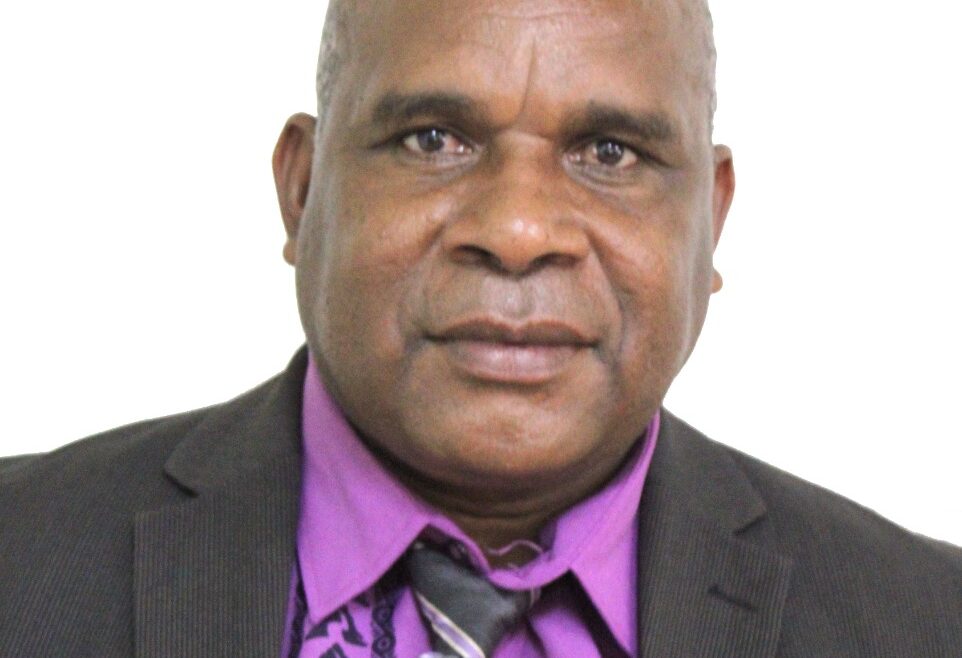
Deputy Principal- Academic
Mr. Mario Mariori Uwea
Let me first welcome you to 2022 Academic year for the school. Our school is one of the oldest school in the country dated back to 1944 with a rich history and the national high school system may have eventuated in the late 1960s. Numerous students have passed this great school that has shaped the country. A little arithmetic seems rather valid by saying that if we had around 250 grade 12 students graduating every end of the year than it would be: 250 x 50 = 12,500 students have already graduated from this school.
In Sogeri National School of Excellence, the academic office deals with matters relating to assessment and teaching and learning that takes place. As the assessment procedures and process has changed considerably in the past 10 years. The changes are imminent for the sake of portraying the image of the school and making students to be competitive academically in this changing and challenging world. Furthermore, the school’s integrity and standing in the community and the society as a whole is a driving tool that portrays how sound the assessment system functions.
Academic Department, there are 5 traditional department which are English, Mathematics, Science, Social Science and Art and Technology. We now have Engineering as a department due to the introduction of STEM curriculum. The traditional subjects are Language and Literature, Advance Mathematics, General Mathematics, Biology, Chemistry, Physics, Economics, Accounting, Geography, History and Information Communication Technology. Our STEM Phylas are Mathematics, Biology, Chemistry, Physics, Technology and Engineering. The only optional subject offered in the school is Japanese as we have a sister school relation with Sendai Ikuei Gakuen s school in Japan. Amidst all challenges STEM curriculum now is changing the status of national high schools and more STEM classes are created which may reduce the number of humanities subjects offered. Our anticipation is to at least maintain one or two humanities classes to sustain its existence in this great change.
As part of the changes adopted by the school and incorporated in the National Teachers Standards Framework (2015) links the different forms of assessment ranging from formative assessment to summative assessment which is also inclusive of evaluation, recording and reporting. The assessment processes also relate to teachers’ ability to develop and apply assessment and evaluation processes and methods to identify the achievement of learning outcomes of students and the quality of the recording and reporting processes they use within the subjects that they are taking. Assessment can be seen as an ongoing process that captures the functions of identifying, gathering and interpreting information about students’ achievement and competency level in relation to the learning outcomes. It can also be categorized into four main levels: classroom-based assessment; school level assessment; external (public) examinations; and national and international assessments of student achievements.
The expectations of the school administration with the office of the Deputy Principal Academic emphasis as well as stresses the importance of assessment which embarks on the competency level of the students.
The school embarks on the formative assessment processes, methods and tools the teacher can use to facilitate and monitor the ongoing assessment of student learning.
Sogeri National School of Excellence adopted an assessment system or program that was trailed by the Measurement Services Division in 2015 to help alleviate some of the delays in the assessment procedures and processes. We are grateful to Packiam Arulappan (Mr.) the Assistant Secretary for MSD as a gesture towards helping schools who were delaying and having difficulties in processing their assessment by assisting us with a user-friendly assessment program we are currently using.
The criterion reference assessment which we are using measures a student’s performance based on mastery of a specific set of skills. It measures what the student knows and doesn’t know at the time of assessment. The student’s performance is not compared to other students’ performance on the same assessment.
Our student results in the national examination is exceptionally good as for the past 5 years the number of students selected in tertiary institutions well above 80 percent which is a tremendous achievement by the school.
Further changes can be seen through the introduction of the STEM Curriculum which embarks on Science Technology, Engineering and Mathematics. The National Executive Council through its Decision in 2009 to introduce the National School of Excellence concept to the National High Schools and selected secondary schools was a step forward for this school. We have achieved the three objectives specified in the policy statement regarding conversion, enrolling, and introducing the STEM curriculum. The focus is to have our students grounded in science and mathematics. Such changes are vital for the country to advance as we try to capture that in our vision 2050. As the pioneer STEM students will be graduating this year which I believe will be a milestone achievement for us.
Thank you
Mr. Mario Mariori Uwea
Deputy Principal- Academic
